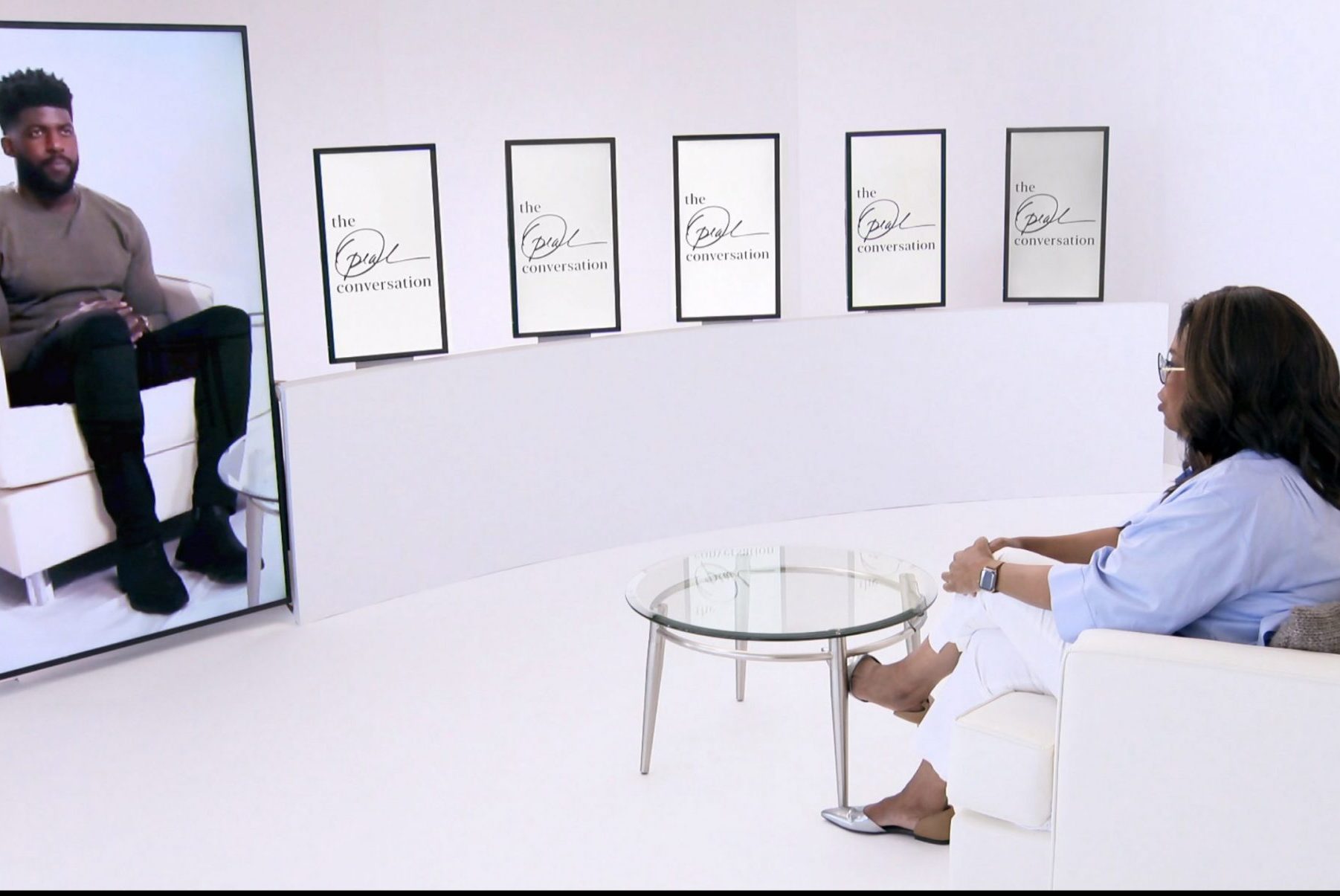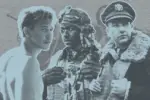In a time of racial injustice, Oprah Winfrey is here to help. At the end of July, Winfrey released her new series on Apple TV+, “The Oprah Conversation,” a show that fosters conversations about pertinent topics presently affecting humanity. As of Aug. 28, only four episodes have been released, all of which have focused on racial tension in America.
“The Oprah Conversation” comes just a couple of months after the killing of George Floyd, an unarmed Black man, at the hands of Derek Chauvin, a white police officer. Floyd’s death, which instigated protests around the country calling for racial justice, has encouraged many people to educate themselves on the current racial tension in America.
While a lot of educational tools often include literature and media that emphasize ways to combat racism, “The Oprah Conversation” takes things one step further by creating a space to have an open discussion about race. The show brings Black activists and non-Black citizens together for conversations that foster mutual understanding by answering questions and challenging commonly held beliefs. With the success of a 25-year talk show behind her along with her own activism for the Black community, there’s no better person to be leading these conversations than Oprah Winfrey.
A Stacked Resumé
Winfrey originally achieved prominence because of her esteemed talk show, “The Oprah Winfrey Show,” where she interviewed everyone from her fourth-grade teacher to Tom Cruise, and also brought heavy issues like sexual abuse to the limelight. The show ran for 25 seasons before ending in 2011.
Fortunately for the talk show mogul’s die-hard fans, Winfrey never left the media landscape. After wrapping up her talk show, she went on to create The Oprah Winfrey Network, more commonly referred to as OWN, a station that expands Black representation on fictional and reality TV shows.
In 2019, Winfrey announced her partnership with Apple TV+, which originally manifested in “Oprah’s Book Club,” a reboot of the original book club featured on her talk show, but in a virtual and accessible format. Since the start of the coronavirus outbreak, Winfrey also created “Oprah Talks COVID-19,” a series where she engages in conversations with experts and everyday people to discuss how to navigate life through a global pandemic.
While Winfrey has recently shifted her focus to addressing racial injustice through “The Oprah Conversation,” it has always been a topic at the forefront of her mind. Over the course of her first show’s 25-year lifespan, Winfrey did over 100 episodes on racism. These shows, heavy by nature, included reuniting the Freedom Riders after 50 years and visiting Forsyth county, a place in Georgia where, at the time of Winfrey’s show in 1987, no Black person had lived for 75 years.
Winfrey’s previous experiences with racism in her personal life combined with her history of handling dialogue about serious topics as well as her advocacy for racial justice, make her the perfect person to lead a nationwide discussion about race.
Necessary Dialogue; Necessary Discomfort
Similarly to the way she handled many discussions on “The Oprah Winfrey Show,” Winfrey does not shy away from discomfort in “The Oprah Conversation.” In two episodes, she talks with Emmanuel Acho, a former Philadelphia Eagles linebacker and current sports broadcaster, who recently started a YouTube series called “Uncomfortable Conversations With a Black Man.” Acho, who uses his YouTube channel as a platform to talk about controversial and often misunderstood topics surrounding race, sat down with Winfrey in “The Oprah Conversation” to answer questions that everyday people have about how to handle race in today’s social climate.
Why is it inappropriate for white people to say the N-word when singing along to a rap song? How should white people go about making Black friends? The questions brought up in “The Oprah Conversation” feel awkward — after all, they’re not often deemed acceptable to talk about in public. Still, Acho dives into the awkwardness and answers them with grace, often touching upon stories from his own life as well as instances in American history that explain why the current racial climate is the way it is, and the steps people should take from this point forward.
In another episode, Winfrey has a conversation with Ibram Kendi, the author of the New York Times bestseller, “How to Be an Anti-Racist.” The book, which piqued readers’ interests after Floyd’s death, examines the warped logic behind racism and encourages readers to be anti-racist and to actively address and combat racism in their day-to-day lives. Winfrey invited people who have read the book to ask Kendi questions and reflect on how it altered their perception of racism.
Throughout “The Oprah Conversation,” Winfrey describes her own experiences as a Black woman in America, and how losses like George Floyd affected her. Specifically, she mentions the case of Sandra Bland, a woman who died in her jail cell under questionable circumstances after an encounter she had with the police right after moving to a different town.
“I was so struck by Sandra Bland because she is a Black woman, as am I, obviously,” Winfrey said. “I remember driving into town … when I was moving from Nashville to Baltimore, and I thought ‘that could have so easily been me.’”
An Uncertain Outlook for Future Conversations
With no trailer and limited information posted on social media, the public doesn’t have much information about “The Oprah Conversation” and what it will look like in future episodes. Will Apple TV+ create multiple seasons? What other topics does Winfrey think America needs an intervention on? From a viewer’s standpoint, much about the series seems up in the air.
One thing, however, remains certain: “The Oprah Conversation” has taken a deep dive into a method that can effectively challenge and change mindsets, all by engaging others with varying viewpoints in conversation. Today race is at the forefront, but if “The Oprah Conversation” continues, one can only imagine the other ways in which America may evolve.

















